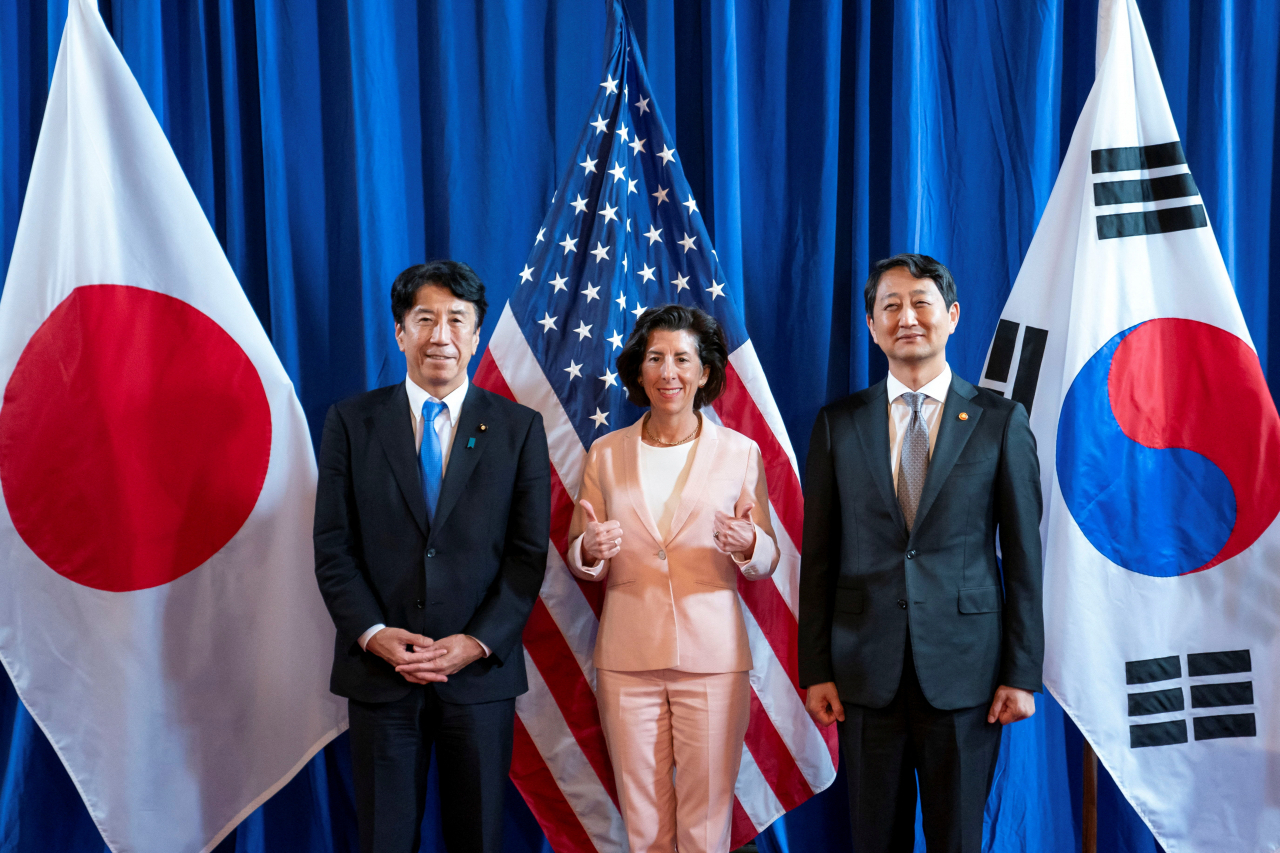 |
South Korea's Minister of Trade, Industry and Energy Ahn Duk-geun, US Commerce Secretary Gina Raimondo and Japan'ss Economy, Trade and Industry Minister Ken Saito pose for a press photo during the inaugural Trilateral Commerce and Industry Ministerial Meeting at the Commerce Department in Washington, US, Wednesday. (Reuters) |
Top economic policymakers from South Korea, the United States and Japan agreed to deepen their trilateral cooperation on semiconductors and key minerals supply chains in a meeting held in Washington on Wednesday.
Korean Minister of Trade, Industry and Energy Ahn Duk-geun, US Secretary of Commerce Gina Raimondo and Japanese Minister of Economy, Trade and Industry Saito Ken held the inaugural three-way ministerial meeting to discuss measures to promote the development of core and emerging technologies and strengthen the economic security of the three countries, according to the Korean ministry on Thursday.
The three countries shared concerns over "the weaponization of economic dependencies on certain supply sources for strategic goods," a joint statement issued by the leaders read.
“There is an urgency to our three sides working closely together to identify potential supply chain vulnerabilities for strategic goods that have resulted from a wide range of non-market policies and practices.”
Although they avoid directly singling out China, the ministers expressed concerns over recent “non-market measures” that may lead to supply chain disruptions for critical minerals such as gallium, germanium and graphite.
China began restricting exports of chip minerals gallium and germanium in August last year and added graphite, a key raw material in electric vehicle batteries, to the list in December.
“We are determined to take appropriate actions where necessary to secure sustainable and resilient global supply chains,” the statement read.
The three countries have decided to regularize the ministerial meeting to advance progress in the areas identified for collaboration, which include semiconductors, clean energy, critical minerals, cyber security and artificial intelligence.
Ahn said he expected that the trilateral talks would enhance industrial cooperation and serve as an institutional foundation for development and joint response to global risks.
“Korea, the United States and Japan are the optimal cooperation partners leading cutting-edge technology and technological innovation, and companions who will together overcome the global supply chain crisis,” he said.
The meeting was based on the agreement reached at the trilateral summit between the leaders of the three countries held at Camp David in August last year.
On export controls, they said Seoul, Washington and Tokyo have an inherent interest in promoting the responsible use of critical and emerging technologies while denying technological advances to those who may exploit them to threaten global peace and security.
“The principals agreed to cooperate on controls for critical and emerging technologies, further align on Russia controls, and collaborate on outreach to countries in Southeast Asia,” the joint statement said.
The statement also covers cooperation in strengthening economic security and long-term economic cooperation among the partners to support operationalizing the Indo-Pacific Economic Framework for Prosperity.







